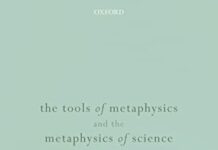
Ebook Info
- Published: 2010
- Number of pages: 304 pages
- Format: PDF
- File Size: 1.92 MB
- Authors: Theodore Sider
Description
Logic for Philosophy is an introduction to logic for students of contemporary philosophy. It is suitable both for advanced undergraduates and for beginning graduate students in philosophy. It covers (i) basic approaches to logic, including proof theory and especially model theory, (ii) extensions of standard logic that are important in philosophy, and (iii) some elementary philosophy of logic. It emphasizes breadth rather than depth. For example, itdiscusses modal logic and counterfactuals, but does not prove the central metalogical results for predicate logic (completeness, undecidability, etc.) Its goal is to introduce students to the logic they need to know in order to read contemporary philosophical work. It is very user-friendly for students without anextensive background in mathematics. In short, this book gives you the understanding of logic that you need to do philosophy.
User’s Reviews
Reviews from Amazon users which were colected at the time this book was published on the website:
⭐The course on logic I had in university for my degree was part of a broader course in discrete math, and was limited to propositional logic and predicate calculus. These are fascinating subjects, but it barely scratches the surface of logic. Ted Sider’s text is short, but dense, deep, and wide. It is not an introductory course, and it takes work and commitment to get through, but is it ever worth it!It begins with the prop logic of my school days, but supplements it with functional terminology. From my math courses, I recognize the definitions as injection, surjection, bijection, and equivalence relations, including reflexivity, symmetry, asymmetry, antisymmetry, and transitivity. He introduces another relational type that I was not familiar with: sequential. He introduces two types of induction. I am familiar with induction on closed formulas from discrete math, and even knew that it could be used in other branches (proving De Moivre’s theorem or Clairault’s theorem, for example). I was even somewhat aware of using on propositions since well formed propositions rely on a recursive definition. I did not know about using induction to prove that theorems themselves have a certain property, but Sider showed how to do this using axioms as the base case and showing that the rules of inference preserve the property being proven. In a later chapter, Sider introduces two models of three-valued logic: one by Stephen Kleene and one by Jan Łukasiewicz.In addition to the predicate calculus I am familiar with, Sider introduces a more formal notation than I am accustomed to by defining the well-formed formulae of PC recursively. In defining the truth values for the connectives and quantifiers, Sider introduces another recursive definition to handle variable assignments, denotations, and n-place predicates. While more complex than the discrete math presentation I am accustomed to, this presentation is more amenable to constructing validity and invalidity proof. Moving beyond standard PC, Sider covers descriptors (*the* president, for example, rather than all presidents or some president) and functional notation, and includes Russell’s notation for eliminating descriptors, which introduces to to narrow scope versus wide scope for a descriptor, which in turn primes us for later issues surrounding de re and de dicto statements in quantified modal logic. He finishes out classical PC with introductions to other quantifiers than the universal and existential quantifiers, and an introduction to free logic. These issues beyond standard PC have implications in metaphysics ranging from necessity of identity, necessity de re and necessity de dicto, and the mind-body problem.Sider then covers modal prop logic (MPL) and quanified modal logic (QML) in all their glory. He covers six distinct systems of MPL with implications in various branches of philosophy including ethics (system D carries the sorts of axioms we expect in reasoning about moral obligations, hence Deontic logic), epistemology(some of the systems carry the sorts of axioms we want for reasoning about knowledge and belief, giving us epistemic logic and doxastic logic), and the metaphysics of time(introducing a system called propositional tense logic that relies on modal operators corresponding to Arthur Prior’s tense operators. After covering these systems and offering the diagram method of finding countermodels to a formula, if they exist, to establish the invalidity of a wff, Sider moves to quantified modal logic, combining the semantics of PC and MPL into a single simple semantics. It is in the discussion of QML that the reader gets the fullest treatment of the de re vs. de dicto issue hinted at in the earlier discussions about the scope of descriptors.Sider’s text covers counterfactual theory, presenting Stalnaker’s model for counterfactuals and a method for establishing the invalidity of a formula using diagrams similar to MPL and QML. After a detailed coverage of Stalnaker’s semantics, we get a discussion of Lewis’ objection to Stalnaker’s model, with an alternate semantics for the Lewis model.Finally, Sider gives the reader a taste of two dimensional modal logic, in which we have a specially designated world that we call the actual world, including the semantics and definitions for that system. He finishes out with a discussion of the application of this system to a very influential argument on the necessity of identity offered by Saul Kripke in his talk, “Identity and Necessity”.The book arrived on time, and in excellent condition, though it is not in excellent condition any more, as I have put significant wear on it reading and referencing it over the past few months. I highly recommend this book for anyone interested in gaining a deeper grasp of various systems of logic and proof, and their applications in philosophy.
⭐We used this text for our advanced logic class, and like all logic books there is a good, a bad, and an ugly. First the good. Sider is an awesome writer; every chapter begins with a wonderfully clear exposition of each topic in philosophical logic. I was especially impressed by his chapter on counterfactuals; every student of those strange conditionals should start here rather than with Lewis or Stalnaker (move on to those guys after reading this!). The bad: like most logicians, Sider assumes the notation he is using will be intuitive to the reader–it is not. I doubt I could have grasped the subtleties of his method, which he repeats in every chapter, without the aid of a professor. The ugly: there are some egregious typos, one which comes to mind is on page 61 where he is proving a major rule of inference (he leaves off a negation sign).The great thing about this book is that it covers all the major topics of deductive logic one finds in technical analytic philosophy, and it is helpful to survey if one needs a refresher on whatever one is studying at the moment. While I continue to believe there is no such thing as a good logic text book, I do think Sider’s is worth owning as it can be referenced easily whenever one has a question about this or that aspect of first and second order logic.
⭐The point to an instructional text shouldn’t be to make the reader feel like they’re too stupid to do the work. Many of the problems cannot be solved unless you know tricks which the author DOES NOT share (there are hints at the back of the book for some problems, but in some cases these are altogether unhelpful, e.g. “remember MN” (modal negation), which is OBVIOUSLY a strategy that needs to be employed in the particular problem under consideration. Great book, if you don’t let not being able to complete the exercises discourage you. But it feels, at times, like the point of the book is just to convince me that Sider is smarter than I am.
⭐This is great if you already have a basic understanding of logic.
⭐Seems exactly what I need to extend my training beyond the basics of symbolic logic. A welcome reference as I continue my studies.
⭐This is quite an amazing read. One of the best intermediate level books on logic out there.
⭐Great book for all logic students. It gives you good exposure to meta-logical proofs and various other axiomatic systems.
⭐great
⭐Siento disentir con muchas de las opiniones que leí antes de comprar el libro.Me considero bien versado (por convicción y profesión) en buena parte de las lógicas que trata el libro, y creo que, en más de un caso, no habría entendido mucho si hubiese usado a Sider como una primera introducción a los distintos temas (en otro nivel, lo mismo puede decirse del sapientísimo lógico, pero no tan buen profesor, Van Benthem).Me explico: Sider picotea en muchísimos sitios importantes para la lógica filosófica, pero suele dar demostraciones muy escuetas (¡o muy incompletas!). Si eres novato, sospecho que comprenderás poco (como mucho, que está pasando algo importante que tendrás que buscar en otro sitio). Si eres experto, la elección de sistemas lógicos es un enigma: ¿sistemas axiomáticos para lógica proposicional en el siglo XXI? ¿Secuentes plagiados del cálculo natural, pero más confusos, al estilo de Lemmon? Para lo primero, el mítico “Metalogic” de Hunter es mucho mejor; para metalógica y versiones naturales, recursos maravillosos y actualizados como Open Logic son mil veces mejores. Además, el libro es muy insuficiente para las propiedades metalógicas de la lógica de primer orden, que se despachan en unas pocas páginas al paso.El libro tiene algún punto a favor, como su tratamiento de las supervaluaciones de la lógica clásica como alternativa a las lógicas n-valentes. El apartado lógico está bien, no tanto su aplicación a problemas filosóficos. Es de agradecer también su tratamiento de las lógicas bidimensionales.En resumen, y elogiando la intención de Sider de ofrecer una introducción enjundiosa a los principales tratamientos lógicos de la filosofía actual, creo que la obra es demasiado poco para el experto y demasiado para quien no conoce de qué se habla. ¡Ojalá otro Graham Priest!This book proceeds at a comfortable pace, and covers a lot of ground. Definitely worth having on your shelf if you’re a philosopher with any interest in logic(s).
Keywords
Free Download Logic for Philosophy in PDF format
Logic for Philosophy PDF Free Download
Download Logic for Philosophy 2010 PDF Free
Logic for Philosophy 2010 PDF Free Download
Download Logic for Philosophy PDF
Free Download Ebook Logic for Philosophy



